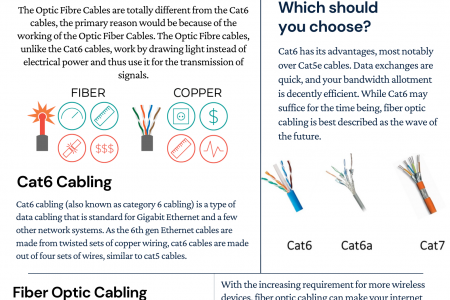
How Optical Fibre Works
How Optical Fibre Works Advantages of Fibre Optic Cable over Copper Optical fibre is a very thin strand of glass or plastic capable of transmitting light from one point to another. It is also known as an optical waveguide, since it is a medium that guides light. Speed Fibre optic networks operate at high speeds - the NBN promises to deliver up to 100Mbps initially, but the network can be updated to deliver content into the gigabyte range. Data travels down the fibre in the form of light. Voice, video, text, all forms of digital data can be encoded into pulses of light and re-encoded into zeros and ones (the basic form of all digital information) at its destination. Bandwidth Large carrying capacity. Distance Signals can be transmitted further without needing to be "refreshed" or strengthened. In high quality fibre signals can be sent 30km before losing strength. A fibre optic communication system generally consists of five stages: An encoder or modulator connected to a transmitter processes the data from an electronic to optical signal and launches it into the fibre. Resistance Fibre optic has far greater resistance to To avoid attenuation (a gradual loss in signal strength), repeaters are used to periodically amplify the signal during its passage through the optical cable. electromagnetic noise such as radios, motors or other nearby cables. Maintenance Fibre optic cable networks cost less to maintain than copper networks. When the signal arrives at the destination, it is received by a detector and reconverted to an electrical signal, which is then sent to a demodulator which decodes the structure of the original signal and which is sent on to the various devices. DEMODULATOR DETECTOR REPEATERS Attenuation avoided by periodic signal amplification via repeaters. SIGNAL ENCODER/ MODULATOR FIBRE DATA TRANSMITTER Cross-section of optical fibre cable (This is a generalised description. Specific cable compositions vary dependent upon application.) PVC Jacket Aramid strengthening elements layer Buffer Cladding Core, optical fibre For more information, Visit: www.fruitycables.co.uk
How Optical Fibre Works
Source
https://frui...cal-fibre/Category
TechnologyGet a Quote



